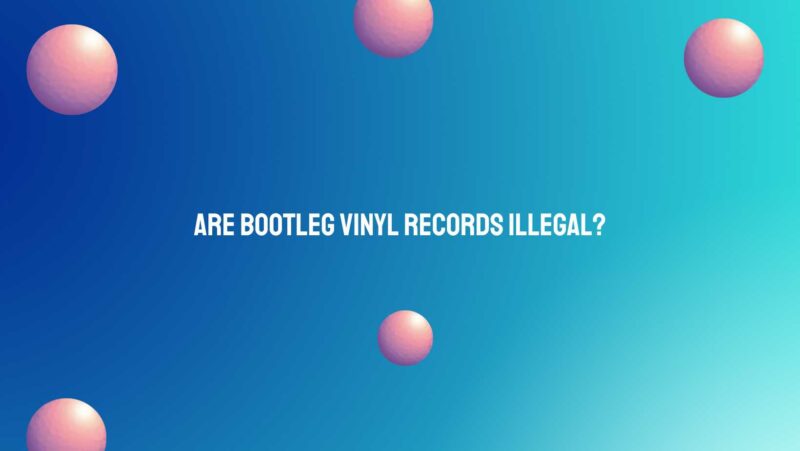The vinyl record revival has sparked interest not only in authentic releases but also in bootleg vinyl records. These unofficial, unauthorized pressings of albums and live performances have found a niche market among collectors and music enthusiasts. However, the legality of bootleg vinyl records is a complex and often contentious issue. In this comprehensive article, we will explore the world of bootleg vinyl records, the legalities surrounding them, and the implications for collectors, artists, and the music industry.
Defining Bootleg Vinyl Records
Bootleg vinyl records, commonly referred to as “bootlegs,” are unauthorized copies of audio recordings that are typically distributed and sold without the permission of the copyright holder, such as the artist or record label. These recordings can include live concerts, unreleased studio sessions, outtakes, and alternate mixes. Bootlegs have been around for decades, with some of the most famous ones being recordings of iconic rock concerts from the 1960s and 1970s.
The Legality of Bootleg Vinyl Records
The legality of bootleg vinyl records varies from country to country and depends on a multitude of factors. Here are some key points to consider:
- Copyright Law: Copyright law is a fundamental aspect of the bootleg debate. In most countries, copyright protection extends to the original musical compositions, lyrics, and sound recordings. Unauthorized reproduction and distribution of copyrighted material without permission are generally considered illegal.
- Ownership of Masters: Record labels often own the master recordings, giving them control over the distribution of these recordings. Bootlegging these recordings without the label’s consent can lead to legal repercussions.
- Public Domain: Some bootlegs may involve recordings that have entered the public domain, meaning they are no longer under copyright protection. In such cases, reproducing and distributing these recordings may be legal, but this varies by jurisdiction and the specific copyright laws in place.
- Fair Use: In some instances, bootlegs could be considered fair use, a legal doctrine that allows limited use of copyrighted material without permission for purposes such as criticism, commentary, or education. However, this is a complex and often debated area of law.
- Artist Endorsement: In rare cases, artists may endorse or even encourage the creation and distribution of bootlegs. However, this does not necessarily make bootlegs legal; they may still infringe on copyright.
Legal Precedents
Throughout history, legal battles surrounding bootleg vinyl records have shaped the conversation around their legality. Notable cases include:
- Led Zeppelin: The band successfully sued bootleggers who were selling unauthorized recordings of their concerts, establishing a precedent for artists’ rights.
- The Grateful Dead: This iconic band allowed fans to record and share their live performances, which blurred the lines between authorized and unauthorized recordings, highlighting the complexity of the issue.
- Bob Dylan: Dylan famously took legal action against bootleggers, leading to the release of “The Bootleg Series,” which included authorized versions of previously unreleased material.
Impact on the Music Industry
The existence of bootleg vinyl records can have both positive and negative effects on the music industry:
- Lost Revenue: Bootlegging can potentially deprive artists, record labels, and songwriters of revenue from legitimate sales and licensing deals.
- Preservation of Music History: Some bootlegs capture historically significant moments in music, allowing fans to access rare and unreleased material that might otherwise be lost to time.
- Promotion and Legacy: In some cases, bootlegs have helped artists gain exposure and maintain their legacy, creating a symbiotic relationship between the underground market and mainstream success.
Conclusion
The legality of bootleg vinyl records remains a complex and contentious issue that continues to evolve with changes in copyright law and technology. While some bootlegs may be deemed illegal due to copyright infringement, others may fall into gray areas where fair use, public domain, or artistic endorsement come into play.
Collectors and music enthusiasts should exercise caution when purchasing bootleg vinyl records, as they may face legal risks and ethical dilemmas. Ultimately, it is essential to be aware of the laws in your jurisdiction and to respect the rights of artists and copyright holders while enjoying the rich cultural tapestry of bootleg recordings.

